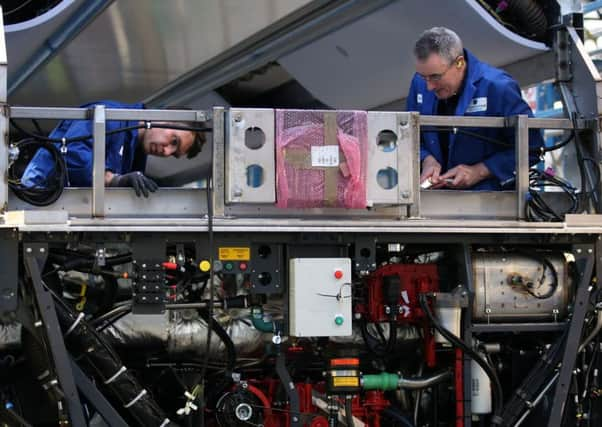Martin Flanagan: Economy hasn't fallen off a Brexit cliff
This article contains affiliate links. We may earn a small commission on items purchased through this article, but that does not affect our editorial judgement.


Output last month hit its highest level in more than two years, according to the latest Markit/Cips manufacturing purchasing managers’ index (PMI).
Post-Brexit blues, what post-Brexit blues? The PMI shows output activity reached 55.4 in September. That was up from 53.4 in August, and ahead of cautious City economists’ expectations of 52.1. Any figure above 50 denotes growth.
Advertisement
Hide AdAdvertisement
Hide AdManufacturing is about 12 per cent of GDP these days. But even the much-bigger services sector has been moving at a fair clip over the summer after the UK’s EU referendum vote. Encouragingly, the manufacturing performance gained momentum as Q3 advanced, and is likely to have further supported better-than-feared growth figures in the period.
Construction, the third substantial leg of UK economy, is still fitful. And there is a – increasingly quiet – body of economic opinion that believes we are in a fool’s paradise; that the real damage to the UK of Brexit will come incrementally, over many months, as negotiations to leave the EU progress.
You can see the thinking. Economic fortunes tend to move in broad cycles. If we are in harm’s way by quitting the EU it wouldn’t be likely to be an overnight cataclysm, but via macro-attrition.
But you can only judge by what you see at any given time. And Britain’s economy has clearly not fallen off the proverbial cliff post‑Brexit. Quite the contrary.
If the Leave camp had been offered before the EU vote that within a few months UK manufacturing, the taciturn yeoman of the economy, would be at its highest since June 2014 it would have been exultant.
